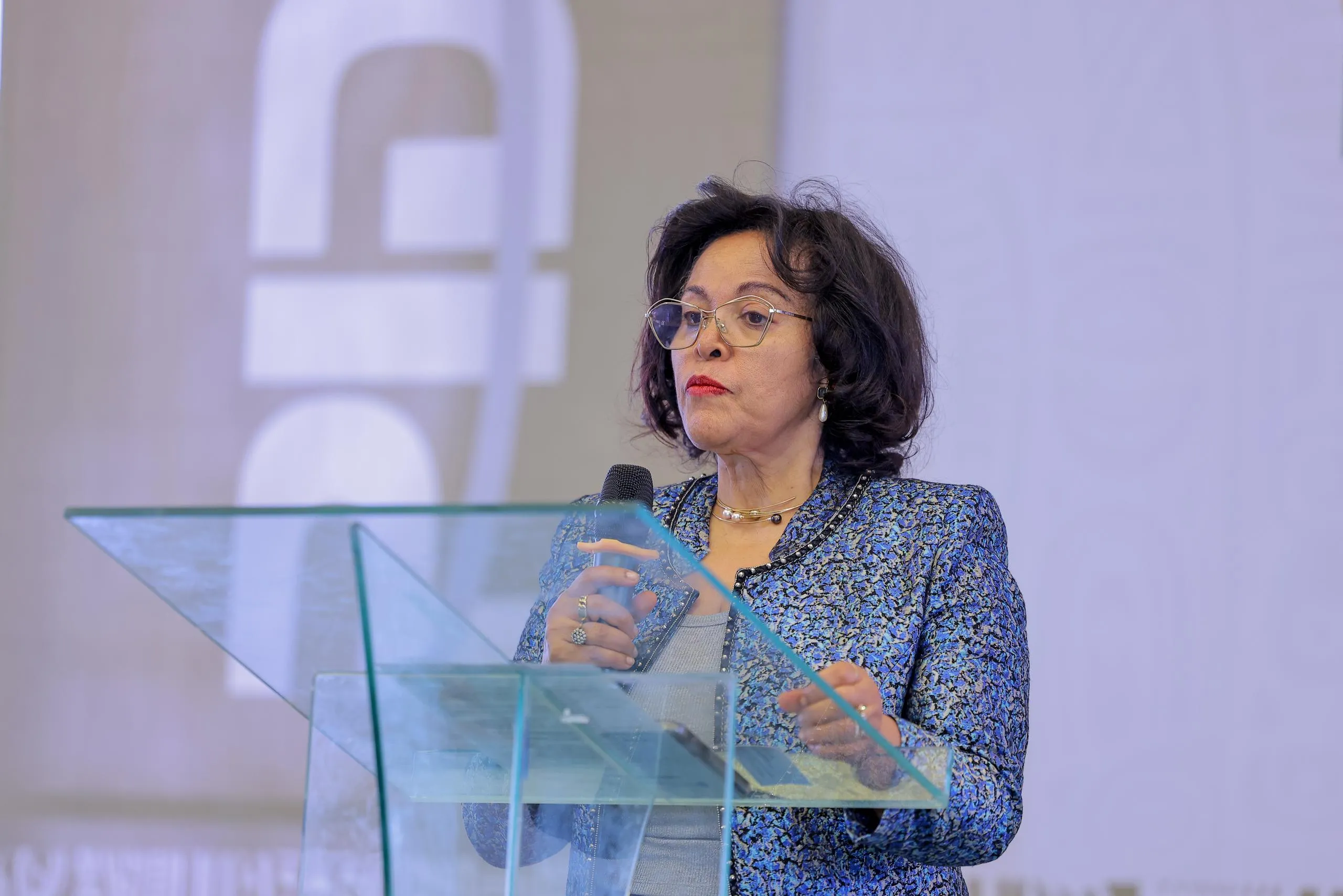
The past year has been a tumultuous one for Nigeria. The country’s financial sector has had to cope with multiple shocks as the new government battles to turn the tide on an economy that has sometimes seemed at risk of going into freefall.
At the beginning of 2023, the banking sector was plunged into a major crisis as a result of former president Muhammadu Buhari’s botched attempt to enforce a redesign of naira banknotes. Old notes were to be removed from circulation and replaced by a new design as part of an effort to reduce inflation and combat money laundering.
But long queues formed outside banks ahead of a hastily imposed deadline for old notes to be exchanged, with many Nigerians panicked by the difficulty of getting hold of new currency. The Supreme Court eventually stepped in to rule that the policy was unlawful.
From this chaotic situation, the financial system has stabilised. Measures introduced by the new government, which took office at the end of May, have improved confidence, but at the expense of short-term pain through higher inflation.
The effects of the cost-of-living crisis are being felt throughout the entire economy. “If you are a banker trying to get deals done, then there’s going to be a challenge because your clients are challenged,” says Sadiq Abu, CEO of the Nigeria operation of Johannesburg-headquartered Absa Group.
As it wrestles with a volatile macroeconomic situation, the banking sector is also facing increased competition from fintech firms. While the rise of fintechs is undoubtedly unsettling for traditionally dominant players in the banking sector, there are signs that increased competition is having positive effects for customers and helping to ensure that a much greater number of Nigerians are included within the banking system.
Mixed macroeconomic fortunes
While he can see “light at the end of the tunnel” as reforms take effect, Abu warns that liquidity issues “will not go away very quickly”.
One of the first major changes introduced by President Bola Tinubu was to abolish the system of multiple exchange rate “windows”, which had previously been responsible for a large gulf between official and black-market exchange rates. With the naira allowed to float, the currency’s official value immediately depreciated significantly against the US dollar.
The official exchange rate has moved closer to the black-market rate, although a discrepancy still exists. This reflects a continued shortage of dollars, with the Central Bank of Nigeria struggling to clear a backlog of foreign-exchange forward contracts.
At the same time, households and businesses are feeling the shockwaves from the removal of fuel subsidies. Inflation has soared to 28%, up from 22% in May when Tinubu took office.
The proportion of loans that are non-performing has ticked slightly upwards in recent months, while Abu says that banks are being “very circumspect” around lending. Where banks are prepared to offer loans, interest rates are often prohibitive, leading many corporates to look for alternative sources of finance.
Nigeria’s capital markets, meanwhile, have gone through their own twists and turns. Several major companies delisted from the Nigerian stock exchange in 2023. The biggest name to exit the NGX was the local subsidiary of pharmaceutical giant Glaxo SmithKline – which ceased doing business in Nigeria altogether. The Union Bank of Nigeria, one of the oldest in the country, also announced its delisting, along with consumer goods company PZ Cussons and energy firm Oando.
Samuel Sule, CEO of Renaissance Capital Africa, says that while a lack of confidence in the Nigerian market is partly responsible for these delisting decisions, another “major factor” is that foreign exchange scarcity means many companies have a glut of naira. A share buyback is a logical strategy, he points out.
On the other hand, the country’s flagship NGX All Share Index has enjoyed a strong 2023, with share prices rising by almost 30% since Tinubu’s inauguration. Investors have poured funds into listed equities, not least because yields on fixed income instruments have turned negative amid high inflation. Sule adds that “perhaps the biggest driver” of this trend has been the growth of local pension funds. These funds have enjoyed a “very material jump” in their assets in recent years and are generally mandated to invest the bulk of their capital in the NGX.
Financial inclusion
The growth of the pension industry highlights the growing maturity of the Nigerian financial system. Yet, while Lagos increasingly has the characteristics of a major regional financial centre with an ecosystem of sophisticated actors, in rural areas of Nigeria the financial system remains out of reach for many.
A report published by Enhancing Financial Innovation and Access (EFInA), a non-profit group, in December 2023 found that 26% of adults remained “financially excluded”. According to the report, 64% are included within the formal financial system, up from 56% in 2020; and another 10% are covered by informal networks. Rates of financial exclusion are higher among women, in rural areas, and in Northern Nigeria.
Chinasa Collins-Ogbuo, who leads EFInA’s Inclusion for All initiative, says that progress in extending financial inclusion has been “significant” in recent years. This is partly because of the relative success of government programmes to encourage access to identification services, without which it is impossible to register for a bank account. However, she adds that without a “strategic approach” in rural areas, these efforts will lose momentum.
Collins-Ogbuo warns that the recent fiasco over the naira redesign “played a huge part in diminishing trust” in government efforts to promote financial inclusion. A government target, set in 2019, of reaching 95% financial inclusion by 2024 looks certain to be missed.
The fintech challenge
Of course, a major factor in promoting financial inclusion has been the rise of fintech companies. While Nigeria lags behind countries such as Kenya in the adoption of mobile money, there is no doubt that fintech firms offering digital financial services in areas where traditional retail banks do not operate have had a positive effect on financial inclusion.
More broadly, fintechs have helped to fill gaps left by traditional banks. In the early 2000s, the banking landscape was “yearning for modernisation”, says Babatunde Okufi, VP for business development in the payment progressing and switching division of Interswitch – a digital payments firm that became only the second billion-dollar “unicorn” in Africa in 2019.
“Banking itself was a bit of a pain,” he reminisces. Conditions were ripe for companies that could offer digital services that helped replace the “tedious and cumbersome” need to physically queue for hours in a bank branch to carry out a payment.
Although the fintech sector has seen explosive growth over the past decade, fintech firms have certainly not had everything go their own way recently. As elsewhere in the world, the tech sector in Nigeria has seen a major drop in valuations, which were hyped to stratospheric levels during covid. The dubious business models of many firms have been exposed. Consolidation is widely viewed as inevitable.
With funding much harder to come by than a few years ago, fintech players today need to “focus on profitability over growth” says Interswitch’s head of ventures, mergers and acquisitions, Victor Sada. He tells us that many venture capital and private equity funds are now looking to exit their tech investments in Nigeria, while dollar-denominated investors wary of the country due to the currency risks. This means “more mature” local companies like Interswitch have opportunities to make acquisitions, he says.
Apekhade Idogho, former executive director of prominent fintech Renmoney, notes that within each segment of the fintech ecosystem, companies are battling to emerge as the “last one standing”. The fintech sector might even be seen as a victim of its own success, given that there are no longer the same glaring gaps to fill as existed 10-20 years ago.
While he says that the sector is going through a “tricky time”, he points out that fintechs have “awoken the market to understand that there are better ways to do things and that better service is possible – and they’ve really thrown a massive spotlight on banking infrastructure.”
Banks have responded to the competition with their own drive into digital services. Absa’s Sadiq Abu tells us that investing in digital capabilities is one of his bank’s “core strategic pillars.”
Abu also notes that the relationships between banks and fintechs is collaborative as much as it is competitive. Fintechs typically “ride on the infrastructure of the banks”, he says.
Venture capital investor Olumide Soyombo, who has backed many fintech start-ups through his firm Voltron Capital, agrees that talk of fintechs displacing traditional banks is overblown. “There’s a lot more collaboration than people know or want to admit,” he says.
Soyombo also agrees that consolidation is both inevitable and ultimately beneficial for the sector. But he remains sanguine about the ability of fintechs to disrupt the financial system. “There are still pockets of opportunities that the banks will most likely not focus on,” he says, noting as an example that banks have been slow to lend to SMEs and insist on requiring collateral.
This kind of disruption and healthy competition can only be a good thing for consumers and businesses in the real economy. Indeed, one thing that is certain is that Nigeria’s increasingly sophisticated financial system will play an ever-greater role in powering progress in the real economy in the coming years.






Recent Comments